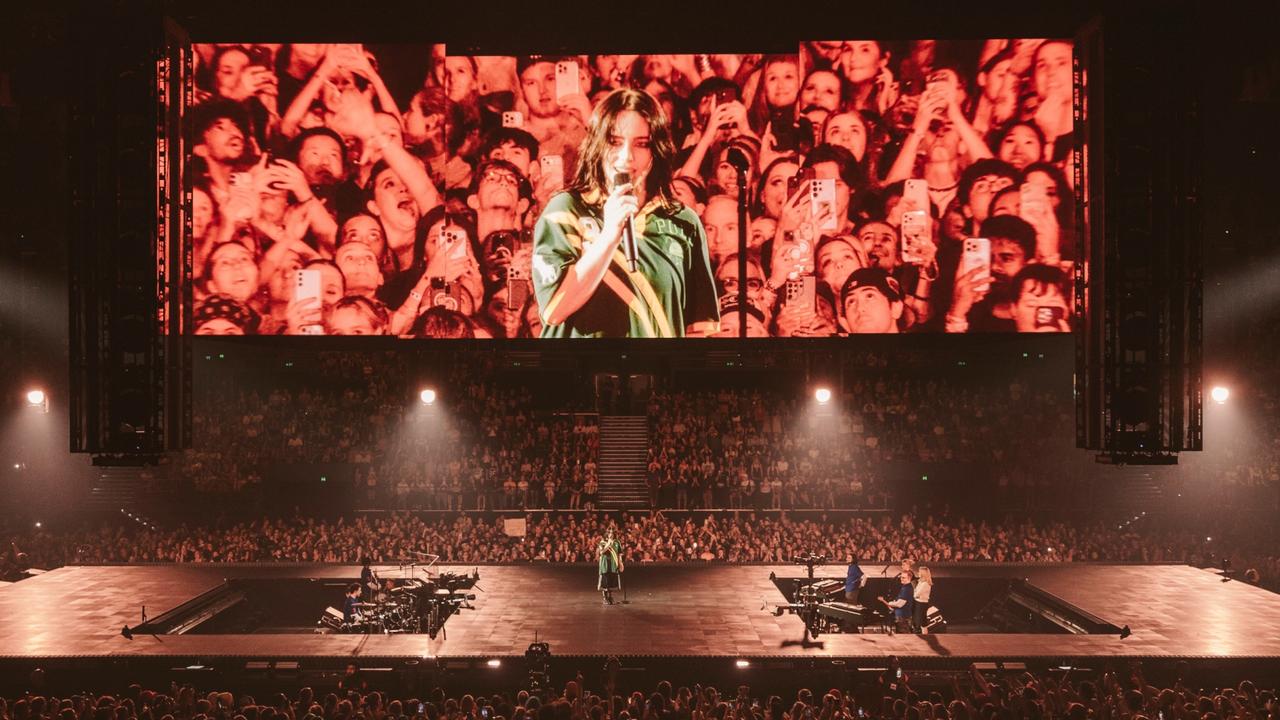The Australian /Vogel’s Literary Award finalists
The Australian /Vogel’s Literary Award, established in 1980, has an impressive honours board.
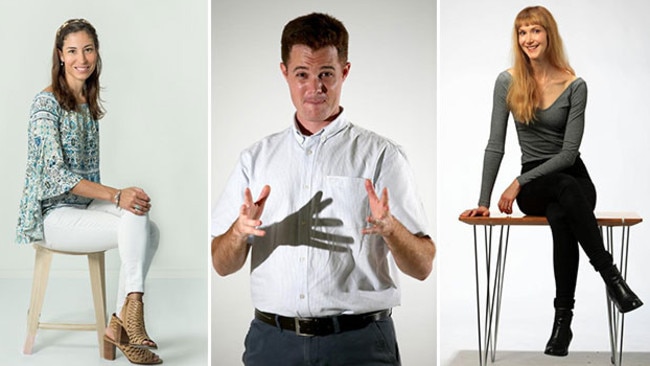
The Australian /Vogel’s Literary Award for an unpublished manuscript by young writer, which this newspaper, the breadmaker, and publisher Allen & Unwin started in 1980, has an impressive honours board.
An obscure 21-year-old from Western Australia was an early recipient, in 1981 for An Open Swimmer. Tim Winton has won a few more prizes since. Other winners include Kate Grenville, Brian Castro, Mandy Sayer, Gillian Mears, Tom Flood, Andrew McGahan, Eva Sallis (now Hornung of Dog Boy fame), Kristel Thornell, Rohan Wilson and, yes, Helen Demidenko. What I like most about the Vogel, of which I’ve been a judge for the past four years, is that it is awarded to writers we are yet to know. I’ve judged lots of awards and one of the challenges lies in the fact the authors and their works are known. I expect this is particularly true of the Miles Franklin, which I’ve yet to judge (but my hand is up!).
With the Vogel, every writer and every book-to-be is new. Reading them reminds me of the passion, intelligence and innovation of Australian literature. Winton and Grenville can deliver that any day of the week, of course, but seeing it in debut manuscripts is exciting.
The other aspect of the Vogel I value is that it is not a winner-only prize. Quite a few manuscripts that make the shortlist end up becoming books, often at the judges’ recommendation. Some are published by A&U, some by other publishers, such as Romy Ash’s Floundering (Text) and Stephanie Bishop’s The Other Side of the World (Hachette), both of which are terrific.
Only this week I was delighted to see Ben Hobson’s To Become a Whale land on my desk. I liked it a lot when it was in Vogel contention last year. Another from the same shortlist that is about to come out is Anna Daniel’s comic Girl In Between. Other recent ones include Gretchen Shirm’s When the Light Falls and Sam Carmody’s The Windy Season.
And so to this year’s shortlist, which includes an unusual contender: a military history. The other four are novels, ranging in subject matter from a justice minister’s daughter who becomes pen pals with a death row inmate, to a journalist son returning to his family property, and the harvest, as his father ails, to a coming-of-age story involving a 14-year-old boy and his soldier brother, to, further from home, an intriguing take on the relationship between Franz Kakfa and Max Brod.
Following are short extracts from each, essentially the opening pages. With the history one I have chosen the preface because it well explains the idea behind the book.
The prize, worth $20,000, will be announced at A&U’s Sydney offices on Wednesday, with writer and TV star Ben Law hosting ceremonies.
Good luck to all.
Stephen Romei
***
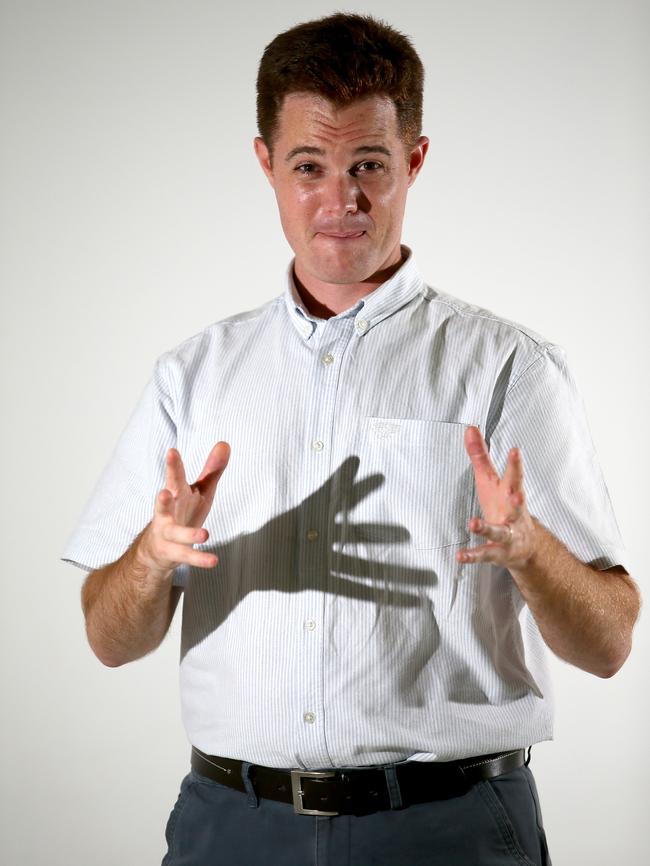
LOCUST SUMMER
By David Allan-Petale
1986
A crook of lightning blinks mutely on the horizon, rumbling with a fused delay of thunder. The pub goes black: a quick thrill, a magic trick, electricity cutting electricity.
“Outside,” Dad orders and I follow him through a muffle of chatter, out across the veranda, under the steep sky to where the utes are parked in the wild grass. “Back her in,” he orders. “I’ll guide you.”
I crank the door and slam myself inside the old Toyota — Mad Max — a cracked windshield, a tape deck stuck on 6PR talk and sinus bending dust on every surface. The engine turns over and breathes through a smear of insects covering the radiator grill.
Steering reverse, left becomes right, and the big metal tray swings over to Dad’s waving arms, back and back and back till he holds up surrender. “Go get a lead from the kitchen,” he barks and jumps up onto the tray. There’s a generator bolted to the floor; he rows the cord with focused fury.
Running back to the pub, I find old John White scraping ice from the sides of the deep freeze, working by candlelight. “Garnish for cocktails,” he says, face cut with shadows. “And the beer if it comes to it.”
“Dad’s firing up the generator,” I tell him, and we rummage around for an extension line in the odds and sods next to the sink. He finds a greasy orange coil and plugs it into a wall socket. “Good thinker your old fella,” he says, teeth glowing in the yellow flames. “You drink free if he can get it working.”
I hurry back outside, the long line unravelling from my hand. The generator yawns and teases and protests. “Start you bastard!” Dad gives it a vicious kick and it puffs away perfectly, suddenly all innocence, running smoothly as it’s supposed to.
“All set,” I say to him and pass up the female end of the line. He plugs it in to the generator’s power pack and the pub’s lights fire up again — our lightning brings cold sweat back to the beer taps. “Job’s a good ’un,” Dad says, and we walk back around the grass lawn to the veranda, our cadence measured with the steady ticking of the generator. The crowd inside the pub cheers when I come back through the doors.
But Dad’s the big hero. Men and women are shaking both his hands, patting him on the back. A few even hug him. Couples are taking turns to talk to him. One by one he bows his head low, bringing him level with their congratulations, and their tears.
“For God’s sake, pass the man a bloody beer,” old John White says from behind the bar. “This is supposed to be a wake.”
1987
My brother drowned in the middle of the desert.
I sat in at the inquest and deciphered the legal speak. A dam filled with tailings — that’s sludge left over from gold processing — burst one of its walls and a river of mud flowed down into the mine. He died like a fly in a drain. Dad never got over it. After the funeral, his life became a country song. He got cancer and Alzheimer’s in one hit and the final lights of his plans for the farm were drowned in chemo and late night coughing fits and misplaced spectacles.
Time is the master of country people. The earth spins and the moon rises and the crops grow and ripen. Life really does go on. So I have to admit I was expecting this.
“Hello Mum,” I say, lifting the phone, checking the time on the dim screen of my clock radio. “It’s five o’clock in the morning.” “I know. How did you know it was me?” “Who else would be up at this hour calling me?” She laughs. Vibrantly awake. “Can you talk?” “Yep. Just give us a sec.” I roll out of bed and walk through to the kitchen to flick on the coffee machine. “What’s on your mind?” “Harvest,” she says. Direct and singular. “Your Dad’s in no shape to lead this one.” “Mum … ” “Just listen. I don’t want to tell you over the phone but that’s the way it’s going to be.” She takes a breath and exhales. “I’m selling. Dad needs specialist care from now on. So this harvest will be our last.”
Her voice is gunmetal. “I’ve lined up a deal that will pay for your Dad’s treatment and set us up for retirement.” I open my mouth to object, but she intervenes. “Love, his mind is going fast. He forgets who I am. You too. He sits in his library and re-reads his books over and over.’’
Dark drips of liquid splatter into the glass pot. I watch them hit and explode, delaying my response as Mum gets closer to the point.
“He thinks it’s still like the old times. So I want you to humour the old bugger. Come back for the harvest. Just pretend nothing’s wrong. That it’s like old times. It will mask the pain. At least till I get packed up and get him to a nursing home.” I don’t know what to say, so I just say, “I’ll see what I can do.”
***
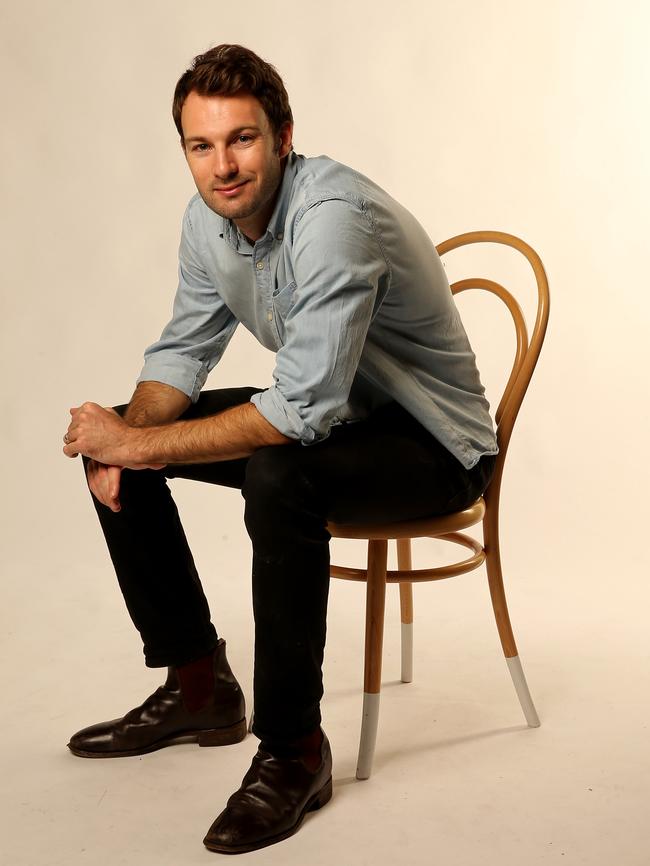
AUSTRALIA’S WAR WITH FRANCE: THE CAMPAIGN IN SYRIA AND LEBANON, 1941
By Richard James
I think that all men get scared at times like these; but there comes a sort of laughing courage from deep within the heart of each, or from some source he never knew existed; and when he feels like that he will gallop into the most blinding death with an utterly unexplainable, don’t care, shrieking laugh upon his lips.
— Ion Idriess
The Nahr al-Kalb, or ‘‘Dog River’’, meets the Mediterranean Sea just north of Beirut, after meandering 30km downstream from its wellspring in the Lebanon range. A four-lane highway overpass runs along this stretch of coast, and tentacles of concrete obscure the river mouth. The strip of land to the north and south has been reclaimed from the sea.
It’s a flat, featureless stretch of windblown sand and garbage. In ancient times, though, the view was very different. The steep riverbanks dropped straight into the ocean, and the Lycus, as the river was then known, was a significant obstacle to conquering armies. Ramases II carved a monument into the rock when he passed this way, as did Nebuchadnezzar, Marcus Aurelius, and various Assyrian kings.
When Napoleon III sent an army to the Levant, his soldiers also carved an impressive memorial to their emperor — right over the top of Ramases’ inscription which, until then, had stood proudly for two-and-a-half millennia.
A modern-day tourist, after dodging traffic from an off-ramp and pulling away a few weeds, can still view these glorious engravings. The history they tell is of an ancient and war-scarred land. The British continued the tradition when General Edmund Allenby conquered Ottoman-ruled Syria and Lebanon during the Great War. That inscription pays homage to the Australian Light Horse, who routed the Turks at Beersheba and pushed on to capture Damascus and Aleppo, paving the way for the French mandate and ending Syria’s four centuries under the yoke of the Ottoman Empire.
Those horsemen are now an Australian legend; and the mystique, if not the detail, of their exploits is part of our nation’s consciousness. But another nearby monument makes mention of a conflict that is not so well recalled:
JUNE-JULY 1941
FIRST AUSTRALIAN CORPS CAPTURED DAMOUR WHILE BRITISH, INDIAN, AUSTRALIAN AND FREE FRENCH TROOPS CAPTURED DAMASCUS BRINGING FREEDOM TO SYRIA AND LEBANON
It has almost been forgotten that our soldiers were back here again a generation later, once again at the behest of the United Kingdom, fighting a strange war against confused Frenchmen who were not supposed to be our enemy. France had been defeated and subjugated by the Germans. The new French government, installed at Vichy, was answerable to the Fuhrer. With France vanquished, the fate of the mandate in Syria and Lebanon became uncertain. The British — urged on by Charles de Gaulle, whose Free French movement had received British sponsorship — sent in the Australian 7th Division to seize it, not expecting that the French Army of the Levant, in defence of its military honour, would put up a fight.
The Australians won the war, but at the price of more than 400 young men, sons of Anzacs who had fought to defend France in the trenches of the Western Front. The British were embarrassed, the campaign was forgotten, and the Australians who fought were dubbed the ‘‘silent men’’. For the Syrians and Lebanese, though, this was a chance for liberation.
The Gaullists clung to a stale notion of French colonial glory, but the British — whose guns kept the peace — knew that change was inevitable, and independence came to both Syria and Lebanon in 1943. By that time the men of the 7th Division had long since returned home and had fought a new war — on the Kokoda Track, against the Japanese — which sealed their own place in history.
Even that recognition was late in coming, and the story of Australia’s involvement in the Levant in 1941 remains largely untold. Basil Hart’s History of the Second World War does not mention it. Antony Beevor’s The Second World War only devotes half a page to it. In Australia, a comprehensive account of the military campaign can be found in the battalion histories, as well as in the series Australia in the War of 1939-1945 edited by Gavin Long. But the geopolitical causes of the conflict, and the motivations of the enemy, are not well understood.
To Australians, the ‘‘Vichy French’’ who fought in the Levant were ‘‘not really French, but ... a separate species, now extinct in the incomprehensible meanderings of time’’.
I had come to Lebanon to find out more about this strange, neglected campaign. From the Dog River we headed south, through the suburbs of Beirut itself and further on down the coast, along the modern highway traversing the narrow strip between the ocean and the mountain foothills. The country was pleasant; to the east, the hazel-coloured spurs of the Lebanon range rose up towards the clouds, flecked with the orange terracotta of apartment roofs. To the west, the Mediterranean sparkled, and colourful beach-resort parasols lined the sand.
The atmosphere changed as the Israeli border drew closer. We passed through ragged banana plantations and empty stretches of rubble-strewn wasteland, as well as Palestinian refugee camps, hidden behind high concrete walls and watchtowers. In the last few years the Palestinians have been joined by a million new refugees from Syria, driven across the border into Lebanon by the neighbouring civil war.
At the Litani River, south of Sidon, a soldier from the United Nations waved us through a checkpoint. Blue-uniformed troops with riot-shields patrolled the roadside. Israel has a tendency to blast this part of the coast with short, intense displays of force. The pretext is to weaken Hezbollah, but locals will tell you that the real objective is to destroy Lebanese infrastructure. Conflict recurs so frequently here that the Second World War seems irrelevant — about as significant as those antiquated inscriptions above the Dog River. I knew that the Australians had fought a fierce battle at the Litani River in 1941, but no one around here remembered it, and there was no battlefield guide to show the way.
All that I had was a hand-drawn sketch from an old battalion diary, and a black-and-white photo from the archives, showing the point where the Australians crossed the river. Alan Haddy, a corporal from the West Australian goldfields, had volunteered to swim across and secure a rope on the opposite bank, under intense fire from Vichy French machineguns and mortars. The Australians were then able to haul canvas boats through the swift current and ford the river. We took a secondary road leading inland from the coast, and were soon lost among the banana groves.
A lone building rose above the foliage in the flat river valley, and we pulled into the gravel drive. It was a grand, multi-storeyed hotel. There were no other guests. The carpark was quiet, the elaborate swimming pool had been drained, and the grass grew long in the garden beds. The interior was dim, and the proprietor, bored-looking, sat behind the desk with a cigarette. A decade ago, the place was apparently a bustling holiday resort, but the 2006 war with Israel had killed the tourism industry here.
The hotel backed on to the river, and I walked around to the function deck, where creeper vines sprung through cracks in the tiles. The Litani, bright and blue-green, gurgled below. I pulled out the old photograph, and realised that I was standing, by chance, on the very spot where it had been taken in 1941. The bend in the river and the aspect of the distant hill were the same. This was the place where Haddy had gone across. It was easy to imagine the Vichy stronghold, on the brown ridge to the north, commanding the surrounding countryside and raining fire down on the Australians.
There were no memorials; no signs. Reeds and bulrushes had reclaimed the riverbanks, and it was silent except for the buzzing of insects. The proprietor sidled up to the railing and thrust a hotel brochure into my hand. ‘‘Tell your friends,’’ he said. ‘‘Everyone has forgotten about this place.’”
***
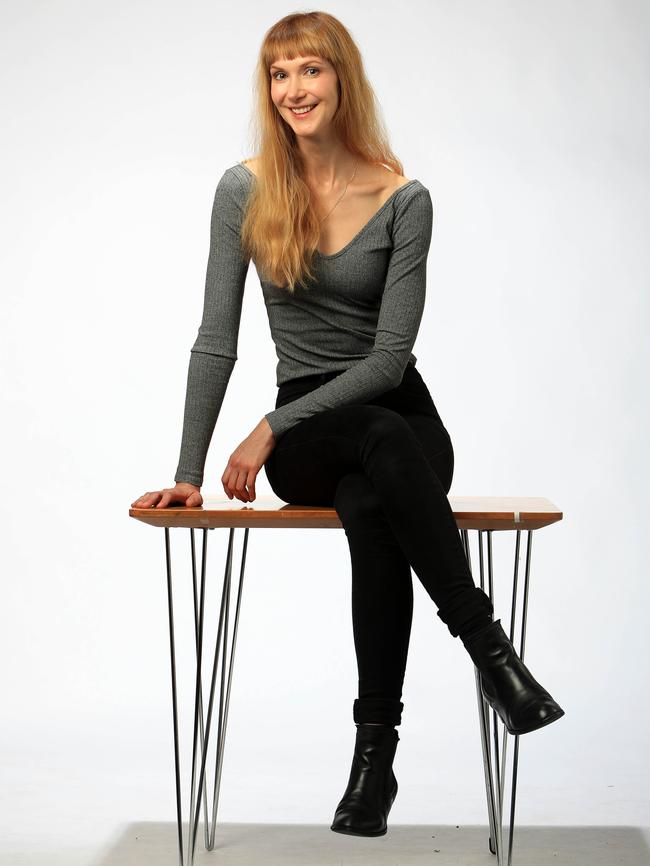
THE LOST PAGES
By Marija Pericic
I still remember the first time I saw Franz; a day that seems now either the beginning or the beginning of the end of my life’s misfortune. It was October, when the days were still bright and sharp and Prague was just beginning to fall into the quiet embrace of autumn. At that time I was writing a book about Schopenhauer, and I was to give a lecture on the subject.
I had studied Schopenhauer since my student days, and although I am no authority on the man and his theories, I certainly know more about him than most. The lecture room where the talk was to take place was small but crowded, and the shuffling of bodies and the scratching of pens on paper formed a constant accompaniment to my voice.
I had hardly been speaking 10 minutes when a voiced sang out from somewhere at the back of the crowd. “You idiot!”
The outburst caused me to pause momentarily. I had just mentioned in passing Schopenhauer’s assertion that this world was the worst of all possible worlds, since a worse world could not continue to exist — an idea with which I happen to agree, its flaws notwithstanding. I decided to ignore the man and push on with my lecture. Perhaps I had misheard. But I had not. After a moment he called out again.
“What a load of shit. Any fool can argue against that.” The heckler was blocked from my view, but his voice was young and self-important. People began shifting in their seats and craning their necks to look at him. I had given many lectures and talks, but this had never happened to me before and I did not know what to do. Was it better to ignore the heckler and continue, or to answer him? I stood hesitating. By now the heckler had taken the attention of a good part of the room, which from my perspective had transformed from rows of faces to rows of head-backs and collars.
His voice came once more, “You are a fool if you truly believe that. There is an infinite number of possible worlds that are worse than this.”
I cleared my throat. “Well,” I began, “problems do exist with —”
“Consider yourself personally,” he interrupted. He stood up and I saw him for the first time. He was of a slight build, dark, and handsome in a somewhat delicate way. His handsomeness surprised and angered me.
He went on, “I could name a thousand things that could be changed about the world that would make the world worse for you, and it would still continue to exist. You could lose your voice, for example.” There were a few scattered laughs from the audience. I ignored them.
“But of course Schopenhauer is not referring to individuals; greater human existence is his theme,” I said.
“It is merely an example,” he said. “There could be incremental changes in any condition in the world — choose any one! — and still we would go on. Things can always be a little worse.” He sat down again, seeming to be satisfied with having voiced his disagreement.
I struggled to appear composed, and hesitated between countering him, which I felt compelled to do, or ignoring him, which I knew was the more dignified approach. His face peered out from the crowd, goading me, but resolutely I turned my eyes back to my page of notes.
For the rest of the lecture, the heckler limited himself to snorts and noisy sighs, but I had nevertheless lost the attention of most of the room. Each of the heckler’s percussive snorts would trigger a chorus of smiles and whispers in the crowd, and by the time I had reached the end of my talk I felt that he had certainly made the world of my evening worse than it could have been. I was expecting a volley of questions from him during the question time at the end, and braced myself, but he remained silent; indeed, he seemed to have disappeared.
Now I could see only a gap in the crowd where his dark head had been. As soon as I left the lecture hall, however, there he was again. He lunged out from the shadows of the corridor and tried to block my way, but I was able to dodge around him. I heard him scurrying after me, calling out my name and then an apology. I walked on. He followed me outside, where he fell into step beside me on the footpath and began to talk about my novel, which had had some success the year before.
He flattered me in an ingratiating tone that I hated, but he piled his pretty words up and up, and soon I had fallen into his trap. I am as vain as the next man and, because I have had no grounds for pride on any other front in my life, my writing is my weak spot. Later, when everything lay ruined around me, I thought often about how my life would have been different had I not spoken to Franz that night, had I been able to resist him. He walked with me all the way to my house, and when we were at the door he thrust a sheaf of papers at me — his short stories, he said. He asked me to look over them, perhaps show them to my publisher. This had happened to me a good deal since the success of my novel; I admit that I always felt a bloom of pleasure at the request, especially with the inevitable realisation that the stories or poems or novels that were pressed on me were no good — or at least nowhere near as good as my own writing. I acceded to Franz’s request in an offhand way, and then promptly lost the stories among the drifts of paper that covered my desk.
A few weeks later, I found his short stories again and read them, not remembering at first what they were. As my eyes passed over the pages a slow horror grew in me, sending my body cold. The stories were not merely good; they were exceptional. I read them again, and then sat for a long time with the papers in my hands. I turned to the title page and stared at the name printed there: Franz Kafka. How that name would come to haunt me.
I could tell you that I was moved and instantly sent the works to Theodor, my publisher; that I hastened to have Kafka’s work brought out into the world; that I eagerly welcomed what was to become such an important addition to the modern German canon.
I could tell you that I felt pleased and proud to bring his work to light, but it would be a lie. All I felt was the sick poison of jealousy, the panic of self-preservation, and a determination to stop Franz at all costs.
I wanted to destroy Franz’s stories …
***

INSIDE THE TIGER
By Hayley Lawrence
Nobody has ever sent me a letter in the post. Not the handwritten, snail mail kind. And I’ve never written one, unless you count Year Seven English when we had to write to the person we most wanted to meet. All the other girls chose a celebrity. I wrote to my mother. It was a stupid idea and none of us heard back. This is probably even more stupid.
Dear Micah,
The pen’s been poised in my grip the last half-hour. What do you say to a guy you’ve never met, who’s living the yin to your yang? I drop the pen on my desk, flex my fingers and peer through the second storey window of my dorm. On the hockey field below, under the eye of a full moon, jacaranda trees cast shadows along the grass. It’s the same moon watching Micah. We have that much in common.
I squint out the dark window, and see him. Huddled in a corner, his ashen face laden with regret. But no one gives a shit, right? Not when you’re shackled by your own mistakes. He reaches a grimy hand in my direction and I shudder. Shake away the haunted image.
From the safety of my dorm, I turn back to the parchment paper. It glares up, brilliantly white. Daring me.
Dammit Bel, write something.
Picking up the abandoned pen, I shuffle taller in the wooden chair that’s been worn down by a century of girls’ backsides.
You may think I know nothing of your life, but you’re wrong. I know what it’s like to live in a compound.
I look at those pretentious words for all of two seconds before scrunching up the paper and launching it into the wastepaper bin to join my growing pile. I’ll destroy the evidence before I go to bed. The evidence of pretending I know anything about Micah at all.
I didn’t choose legal studies. The subject ranked about as high on my list as my desire to eat glass. The simple fact is, the course lists filled up while I was finishing the final pages of Sir Thomas More’s Utopia. The perfect world. If only. Instead of finding utopia, I copped Mr Robb and legal studies. Then one dreary September afternoon when a lone fly buzzed through the lethargy of our classroom, he waved his hands through the air like a magician. But just when I expected him to boom, “pick a card, any card”, he said, “choose a cause, any cause”. Okay, not those exact words, but words that hauled me upright.
“Align yourselves with a political movement for the betterment of society, the world, yourselves, each other …” Blah, blah, blah.
I seesaw the pen between my fingers as I examine the fresh sheet of paper on my desk, aka, my easy way out of this assignment … writing to a prisoner is kind of a cause, isn’t it?
Dear Micah,
When I stop thinking about them, the words come. Fast and flippant. Without giving the paper another glance, I let my pen glide, dirtying the blinding white with my black scrawl. Things I wouldn’t be brave enough to spill to a stranger, but meh. It’s 1am and the paper is a shield I indulge greedily.
Some people say life is long. Plenty of time to get things done. But they’re wrong. I’m guessing this is one point we both agree on. Your ad (if you can call it that) said you were looking for someone to write, so here I am. All seventeen years and forty-eight kilos of me. My name’s Annabelle but everyone calls me Bel. Well everyone except Dad. He says he wants to honour the name Mum chose, but really he uses Annabelle because he’s a traditionalist. And to piss me off. Anyway, I figure you and I have a few things in common. See, I’ve been in boarding school the last seven years. Dad would have put me in earlier, but year five was the earliest I could start. Sometimes I feel like Rapunzel, locked away from the world. Then there are the days where this is the only place I belong.
The start of every year, I hear the new girls crying down the hall at night. Takes them about a month to settle. But once you mould yourself to the place, you wonder if you’ll ever lose the gong of that brass bell in your head. I swear that noise will haunt me till I’m a crumpled old lady. Do you ever get lonely? Or so bored you could chew a rope? What’s it like inside prison? Have you got friends in there that have your back? I’ve got my roommate Tash. More like a sister really.
Shit, there are footsteps. Security rounds. I’ve been caught up late before, so I better go. Hope this letter sails across the sea and into your hands. If it does, please write me back.
Bel
“Morning girls.” Watchkins marches to the servery out the front of the cafeteria. She plucks a rubber band off the small pile of letters in her hand and smiles smugly at her own humour.
The mail list gets shorter every week. Mostly it’s the Nannas left. Potpourri sachets for underwear drawers, a birthday card. Money if you’re lucky. Or if you’re unlucky, a phone bill your parents are pissed about.
Watchkins adjusts her glasses and reads out the first envelope. “Airlie Smith.” Airlie slides off her bench seat and struts to the front. It’s her birthday this week and everyone knows it. “Jacinta Wotherspoon, Mandy Maree.”
“Seriously Tash,” I say under my breath, “Othello is doing my head in. I mean, the guy drove himself to insanity and murdered his wife, but we’re supposed to feel sorry for him?”
“Ah, that’s you.” Tash nudges me with her elbow. “What?” “A letter.” She raises one eyebrow. “For you.” I swivel my legs over the top of the bench as my heart does this weird flop inside my chest.
“Annabelle Atkinson.” Watchkins draws down her lips in surprise as I approach. “A first time for everything.” I stand mute before her, snatching the standard-sized white envelope from her outstretched fingers.
It’s unabashedly plastered with about a dozen green stamps declaring the Kingdom of Thailand. The croissant shifts inside my stomach. I cross the room and quickly straddle the bench seat, jamming the letter into my folder on the table.
“Well…?” Tash whispers. “Who’s it from?”
“I don’t know,” I mumble. Not entirely a lie. I don’t know a damn thing about him.
“Probably one of those people who paint Christmas cards with their feet and want you to buy them,” she says, flicking a curl.
“Probably.”
She studies my face. “Bel, what is it? You’ve gone all white.”
“Tell you later.”
I claw my fingers around my folder, but no amount of clenching prevents my stomach from tumbling. I initiated. And the gesture’s been returned. A Pandora’s Box, waiting to be opened.
We have 15 minutes before our Shakespeare essay. That’s 15 minutes too short for anything except walking to class. But I drag her out of the cafeteria in the opposite direction.
“Bel, we don’t have time,” Tash says as I close the door to our dorm. “What is it?”
I slide the letter from my folder. All foreign postage stamps and green emblazoned ink glaring out. “Okay, so don’t go making a big deal of this …” Tash eyes the envelope. “This?” Checks her watch. “We have like, twelve minutes.”
I bite my bottom lip, lower my voice. “You know how Mr Robb made us choose a cause for legal studies —”
“You said you wouldn’t.”
“Exactly. So I chose something like a cause.”
She frowns. “Well it either is or it isn’t.”
“If Dad can’t use me as his little campaigner anymore, I’m sure as hell not going to let Mr Robb do it. I found a plan B.”
“How unlike you.” Her sarcasm is endearing. “But what’s this got to do with that?” She points a trigger finger at the letter.
“See, there’s this website where you can write to a prisoner …”
“A what?” She swallows like she just downed a shot of straight vodka.
“A prisoner. Sort of like … a pen pal? There are lists and lists of prisoners online, Tash, all lonely and looking for someone who might pick up a pen and write to them, who might give a shit, just a little bit, you know?”
“Wow.” Her eyes have gone wide, making them a brighter shade of blue.
“In the end, I picked Bang Kwang Prison in Thailand. And I figured, if I’m going to write, may as well pick someone who really needs it, right? So I found the Death Row prisoners, and voila. Chose this Aussie guy. Wrote a letter.”
“Death row? Bel, honey … ”
“What?” I set my jaw.
“Well, couldn’t you have gone for something petty, like … I don’t know, someone serving five years? I mean, this guy’s going to die.”
“Hello, aren’t we all?” …
I inhale deeply and tear open the envelope.
***
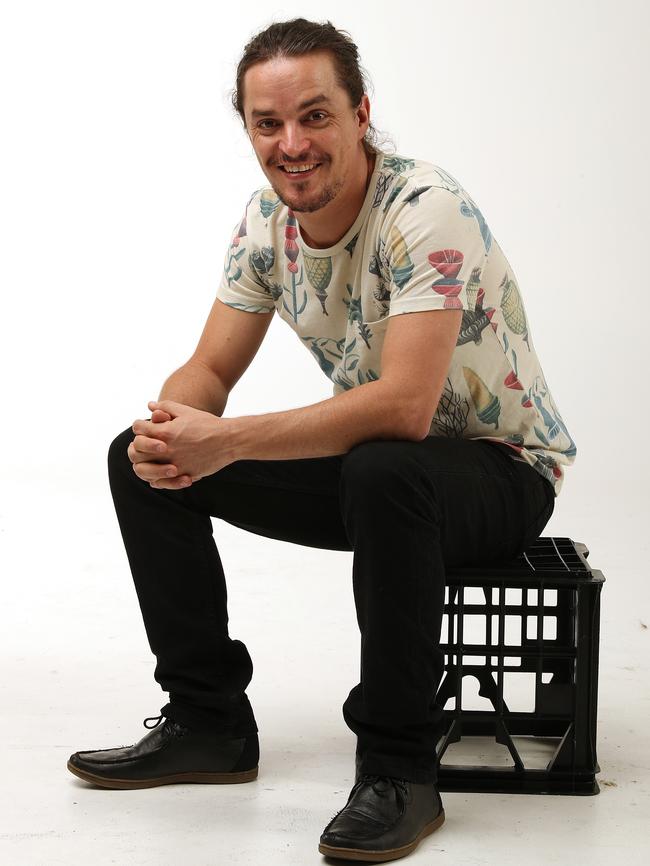
TRYST
By Jarrah Dundler
I had just turned 14 when my big brother Shaun went off to fight the Taliban in Afghanistan. The war hadn’t even been raging for a year but already our boys and the rest of the team were kicking arse. Shaun’d been keen to head off from the get-go, while the dust from the two towers was still settling. He’d been bummed when his number hadn’t been called to fly off with the first round of troops. He’d been gutted when he missed out on the second round. So when they called his number for the third round he was over the moon. So was I — over the moon and proud as. I reckoned I believed in that mission as much as he and his battalion did. If I’d been old enough to serve I’d be over there fighting alongside him. Shaun being over was the next best thing. I was so proud that I wasn’t even sad on the day he left. Not even a bit.
Mum was though: sad as anything. I didn’t have a clue what my dad — Old Greggy Boy — was feeling. He didn’t even come up from his caravan by the creek to say goodbye. This wasn’t a big surprise given that Shaun and he had been blueing on and off for a couple of years. So it ended up being just me and Mum farewelling Shaun from the top steps of our farmhouse which sat smack-bang in the middle of 200 acres of land that hadn’t been farmed in years. It was the middle of winter, the sky clear and sharp like glass. The air smelt like thawing frost. Tiny brown birds with silver rings round their eyes that had come our way to escape the southern winter darted between the bushes that lined our fence. They chirped and chirped and chirped as they jetted round. Along with Shaun’s boots crunching up the dirt driveway those birds were the only things making a sound. After Shaun’d packed his bags into his 2001 Ford XR8, he patted me on the back and told me to be good, take care of his stuff, and look after Mum. Mum’s turn to say bye was next. She shot up off the step like a rocket, grabbed Shaun and squeezed him so hard I thought his head might pop off. Shaun made a beeline for his car (pelting, like he was worried Mum might give chase and tackle him) jumped in and tore off ... arm waving wildly out the window as he rounded the first bend. That arm waving was the last I saw of Shaun for five months, and what a long five months they turned out to be.
As soon as Shaun left, Mum lost it. She cried and cried and cried for days. I guess it shouldn’t have come as a surprise. The pressure had been building during the week before his deployment. Mum was on edge then — screeching at me for doing things that didn’t usually bother her — and crying a couple of times, but only ever in short bursts. Once Shaun had gone to war it was like someone had turned on the taps and thrown away the handle. I tried to cheer her up, take care of her like Shaun’d told me to. I made her cups of tea (the way she liked it) and chatted with her while she drank them. I told her that she needn’t worry cause Shaun was tough as. I don’t know if it was all the tea or the chats but by the end of the first month she seemed to be travelling much better.
Then we got news on the radio that some troops in Afghanistan had been injured in an ambush. Even though we soon worked out it wasn’t Shaun’s battalion, that news shook Mum up something fierce. She kind of broke after that, started going through one of her yo-yo phases which I hadn’t seen her do in a while. Up and down she went. Up, down. Up, down. Some afternoons I’d come home from school to find her fluttering about the house doing a million things at once — dusting, sweeping the floors, cooking dinner — and going a million miles an hour. Other days I’d find her lying on the couch surrounded by piles of tissues and an ashtray full of durry butts (even though she’d quit smoking years and years before). Then one day I strode up the front steps, tossed my school bag on the floor and called ‘‘hello, Mumsy!’’ but didn’t get a response. She was on the couch. Not surrounded by tissues, but empty bottles of beer and cans of scotch and dry. She slept the afternoon and evening away. That was the first of many nights that I cooked and ate my own dinner (grilled cheese on toast). I thought a few times about trying to get Old Greggy Boy to come back up to the house and help out but wasn’t sure if it’d do more harm than good. Like Shaun and Dad, Mum and Dad weren’t on speaking terms either and hadn’t been for a while. I don’t reckon he could have done much anyway. I’d worked out by then that it’d only be Shaun’s return that would get her up off that lounge. Well, those five months were wild, but none more so than the last month (the month before Shaun came home). So many crazy things happened in that month it’s hard to believe. In that month, all in that one month, I caught a fish that saved my mum’s life, I got suspended from school, I found out my uncle Trev was a druggie, and (here’s the big one) I kissed Jessica Mayer for the first time. Looking back I reckon all that stuff happening was a good thing cause it helped set me up for the time when Shaun got back. Things got even wilder then. More out of control than they’d ever been.



